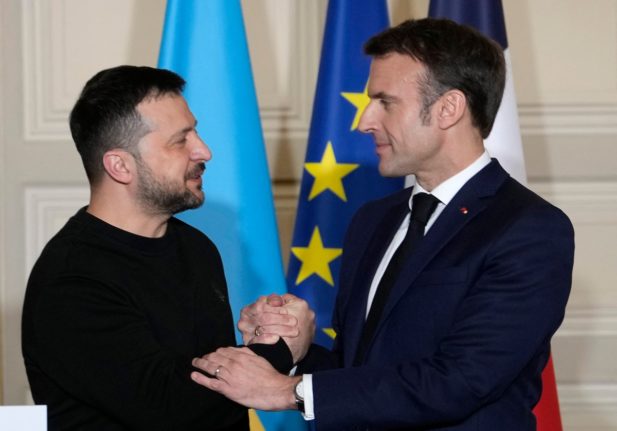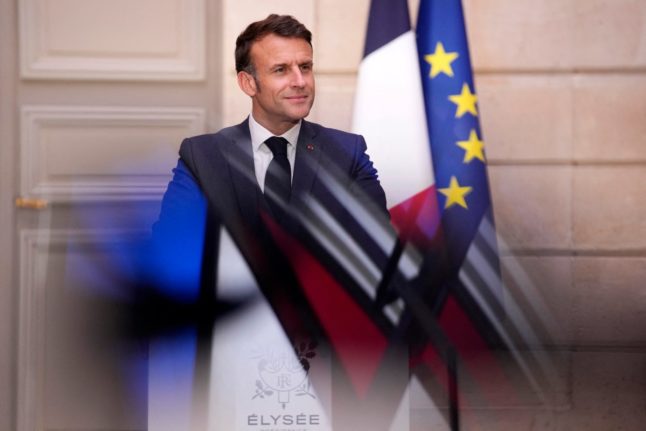Macron had initially said he would visit Ukraine in February, before indicating that the visit would take place before mid-March.
The trip will be the second Macron has made to Ukraine since the start of the full-scale Russian invasion in February 2022, following a visit he made alongside German Chancellor Olaf Scholz and then Italian premier Mario Draghi to Kyiv in June that year.
The French president has in recent weeks infuriated Russia with his calls to ramp up support for Ukraine, with the Kremlin warning last week that he was increasing France’s involvement in the Ukraine conflict.
On Sunday evening Macron spoke with Ukrainian President Volodymyr Zelensky, and the two “agreed to remain in close contact,” the Elysée said in a statement, adding that the French president’s visit to Ukraine “should take place in the coming weeks.”
While Sunday’s statement provided no other details about the upcoming visit to Ukraine, Macron’s trip is believed – according to French media reports – to have been repeatedly postponed due to security considerations. Macron hosted Zelensky in Paris in mid-February when the two signed a bilateral security pact.
Last week a deadly Russian missile strike on the southern Ukrainian port city of Odesa appeared to land near the motorcade of Zelensky and the visiting Greek Prime Minister Kyriakos Mitsotakis.
“We took it as a message,” French newspaper La Tribune Dimanche quoted a source close to Macron as saying.
Macron had initially been scheduled to travel to the capital Kyiv and Odesa on February 13th and 14th, the newspaper said.
La Tribune Dimanche also said that Macron could again visit Ukraine in the company of leaders of other countries, this time possibly from the Baltic States, Romania, Britain and the Czech Republic.
In late February Macron caused an uproar by refusing to rule out the dispatch of Western ground troops to Ukraine. Last week French Defence Minister Sebastien Lecornu said that while the deployment of Western combat troops to fight in Ukraine was not on the table, a greater military presence could include mine clearance and the training of Ukrainian soldiers on Ukrainian soil.
Macron’s office said both the French president and Zelensky “reiterated their desire to make progress” on cyber defence, mine clearance, maintenance and co-production of armaments in Ukraine, and border security, among other priorities.



 Please whitelist us to continue reading.
Please whitelist us to continue reading.
Member comments